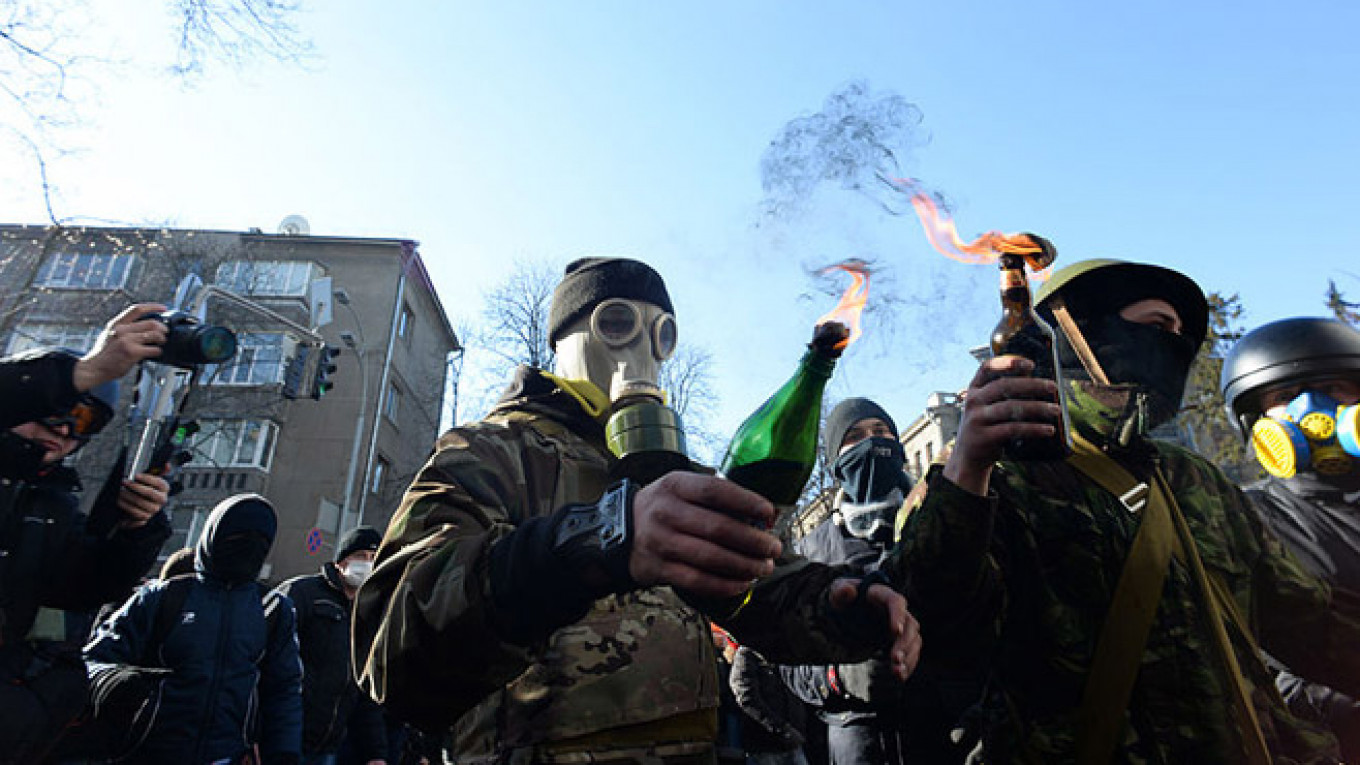The Levada Center every year asks Russians about their attitudes toward domestic political protest. And, year after year, the results show that the average citizens' interest in political activity is quite low.
Long-term observations indicate that people are more likely to anticipate protests against falling living standards than they are political protests. They are also less interested in personally joining protests than they think others are, although they anticipate, or simply say they anticipate, a greater number of protests than ultimately take place.
More people are likely to say they will take part in protests than to actually do so — not unlike questions concerning their willingness to emigrate.
And even in this relatively safe format, only a small minority of people express a desire to stand up to the authorities and make demands for their constitutional rights. Conversely, the vast majority expresses no such intentions and is therefore considered loyal to the government.
By late June, a record-high 81 percent of respondents felt that political protests were unlikely at the current time, and a record-high 86 percent said they "generally approved" of President Vladimir Putin's activities. It is no coincidence that both figures are similarly high.
The Levada Center emphasizes, though, that the meaning of the words "generally approve" is not always meant literally but conveys a desire to be part of a larger group. Many Russians enjoy the connection they feel with the larger whole by saying the slogan "Crimea belongs to Russia." That way, they can shake off the unpleasant feeling that no other countries want to agree with Russia's position on the issue.
But there is another reason for this rare display of solidarity in Russian society, and that is the complex Russian reaction to the pro-EU protests on Kiev's Maidan Square. Despite efforts by state-controlled television, a 51 percent majority of Russians understood in May that "on the Maidan from December of last year through February of this year, a popular uprising took place against the corrupt regime of former Ukrainian President Viktor Yanukovych."
Russians have always considered Yanukovych as "close" to or similar to "our own" government officials. Recall that Russians also believe their country's government bureaucracy is rife with corruption. And weren't the mass demonstrations on Bolotnaya Ploshchad, the Russian precursor to the Maidan protests, directed against that corruption? Russia and Ukraine seemed to be moving on parallel tracks.
But Russians, with only rare exceptions, are disinclined toward taking firm stances on their constitutional rights, and the vision of uncontrolled chaos that appeared to be Ukraine's fate seems to have genuinely frightened Russians rather than inspired them toward similar protests.
But what are the alternatives to protesting? There are two possible reactions. One, as mentioned above, is to mentally rally around the country's leadership, inspired by fear of chaos and discounting actual protests as a viable option.
The other is to mentally or even physically escape. Among respondents of all ages, Russian youths were the least likely to express a readiness to protest — only 8 percent — and as recently as May they also expressed the greatest support for Putin. At the same time, 22 percent of youths, more than all other age groups, expressed a desire to leave Russia.
Alexei Levinson is head of social and cultural research for the Levada Center. This comment originally appeared in Vedomosti.
A Message from The Moscow Times:
Dear readers,
We are facing unprecedented challenges. Russia's Prosecutor General's Office has designated The Moscow Times as an "undesirable" organization, criminalizing our work and putting our staff at risk of prosecution. This follows our earlier unjust labeling as a "foreign agent."
These actions are direct attempts to silence independent journalism in Russia. The authorities claim our work "discredits the decisions of the Russian leadership." We see things differently: we strive to provide accurate, unbiased reporting on Russia.
We, the journalists of The Moscow Times, refuse to be silenced. But to continue our work, we need your help.
Your support, no matter how small, makes a world of difference. If you can, please support us monthly starting from just $2. It's quick to set up, and every contribution makes a significant impact.
By supporting The Moscow Times, you're defending open, independent journalism in the face of repression. Thank you for standing with us.
Remind me later.








